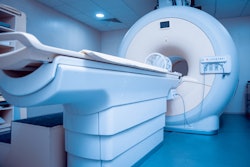Coming helium shortages could have a dramatic impact on medical imaging, according to a BBC report.
The BBC noted that hospitals are the largest consumers of the gas, accounting for more than a third of the global market. (Overall, the U.S. uses about 46% of the global supply of helium, followed by Qatar at 38%, according to the report).
Among many other uses, the gas is used to cool medical MRI scanners and to manufacture semiconductors. In 2024, the U.S. government sold the U.S. Federal Helium Reserve to industrial gas supplier Messer, a private firm; critics expressed concern that the move would jeopardize the U.S. helium supply. There have been four worldwide helium shortages in the past two decades, the BBC reported.
In response to a helium shortage concern, vendors are developing MRI scanners that require less of it. But these low-helium scanners can be expensive, and it would take "many years to replace the more than 35,000 MRI machines that use superconductors worldwide," the BBC said. Other efforts to avoid a helium shortage include recycling the gas, it noted.




















